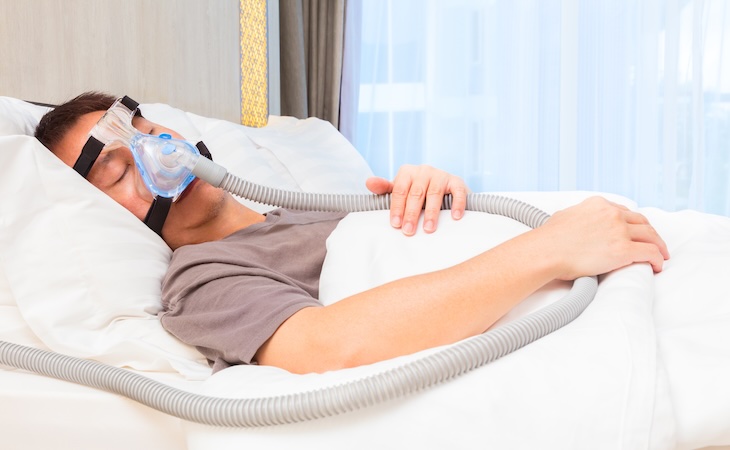It can be alarming to wake up with your hands feeling numb or tingling with what we commonly call pins and needles. But it’s actually extremely common and usually nothing to worry about as long as it goes away within a few minutes after awakening.
“Waking up with numbness in your hands is normal if you don’t have an underlying medical problem,” says Edibel Quintero, MD, at the University of Zulia, Venezuela.
This article will explain why hands go numb when sleeping, what you can do to prevent it from happening, and when to seek medical care if it persists.
Why do my hands go numb when I sleep?
A variety of things can cause pain and numbness in hands and arms while sleeping and give you that tingling pins-and-needles sensation, known as paresthesia, as you wake up.
Some of the most common causes include:
Sleep position
“Sleep position is key to this,” says Vishal K. Verma, a Virginia-based orthopedic and sports chiropractor. He explains that side sleeping without proper pillow support can result in compression of nerves in the spine or shoulders. Back sleeping without proper head and neck support can also cause it if the neck is the source of compression.
Nerve compression or damage
Falling asleep in a position that compresses blood vessels or nerves in your hands can cause numbness. It should go away when you change your sleep position. If it doesn’t, the nerve compression could be due to an underlying medical condition.
These three nerves run through your arms and hands, and compression of any of them can cause numbness:
- Ulnar nerve compression: The ulnar nerve runs from your elbow to your fingers. That tingling sensation you get when you hit your elbow is your ulnar nerve. Pressure on your elbow or wrist could compress the ulnar nerve, creating numb fingers when you wake up.
- Radial nerve compression: The radial nerve controls the muscles in your forearm and wrist that let you extend your wrist and fingers. Pressure on your wrist, forearm, or bicep can pinch the radial nerve and cause numbness and pain. Resting your head on your forearms or curling your wrists under your head to cushion it can put pressure on the radial nerve.
- Carpal tunnel syndrome: The median nerve and the tendons of the fingers pass through the carpal tunnel in your wrist. Compression of the median nerve within the tunnel causes carpal tunnel syndrome (CTS). It’s mainly caused by repetitive motion injuries, fractures, and sprains that lead to swelling and pressure on the median nerve. CTS symptoms include numbness in the thumb, index, and middle fingers; pain or numbness that spreads to the hand and wrist; and weakness in the fingers and hands.
Certain medical conditions
Certain medical conditions can cause your hands to go numb while you sleep, including these four:
- Cervical spondylosis: This age-related condition affects the spinal vertebrae in the neck, mainly affecting people aged 60 and older. Degeneration or osteoarthritis in the cartilage that cushions the vertebrae can increase pressure on the spinal cord and cause numbness in the hands and fingers. The upshot is often pain or stiffness in the neck, weakness in the arms, hands, or fingers, loss of grip strength, and other related limitations.
- Thoracic outlet syndrome (TOS): The gap between your rib cage and collarbones, known as the thoracic outlet, houses important veins, nerves, and arteries that run from your neck. When this gap compresses, it also compresses the nerves and blood vessels inside it. Most cases of TOS are caused by whiplash or other neck trauma. It can cause tingling and numbness as well as pain and discomfort, swelling, a bluish tint to the skin, and tiredness in one or both arms.
- Peripheral neuropathy: Neuropathy is any kind of damage to nerves, and peripheral neuropathy is nerve damage in your hands, feet, arms, and legs. There are more than 100 known causes of peripheral neuropathy, including injury, diabetes, vascular problems, medication or chemotherapy side effects, infections, and alcohol use disorder. Peripheral neuropathy is serious, and the numbness can become even more painful and include blisters and sores.
- Type 2 diabetes: Diabetes complications can lead to swelling in areas that put pressure on nerves and veins. Quintero says nerve damage is common in people with diabetes, but maintaining blood sugar levels can prevent it. Nancy Mitchell, a registered geriatric nurse and contributor to Assisted Living, explains that one of the most common symptoms of type 2 diabetes is peripheral neuropathy. “Symptoms of peripheral neuropathy tend to worsen during the night and are likely the cause of pain and numbness for sleeping patients,” she explains.
How do you manage numbness in your hands while sleeping?
Here are a few tips to help prevent or manage numbness in your hands while you sleep:
- Try a different sleeping position: “Prevention,” says Verma, “is as easy as proper support with both a pillow and mattress that firmly, yet gently, supports the body in your sleep position.” Verma adds that a medium to firm mattress—with possibly a pillow top—will be comfortable for most sleep positions.
- Avoid putting your arms under your pillow: “On average, a person’s head is 11 pounds,” says Quintero, “enough to put significant pressure on your hands or arms if you sleep on them for a long time. This compresses the nerves going to the arms and hands, resulting in numbness.”
- Stretch your hands and wrist before bed: Think of it as you would stretching before or after you exercise, in this case preparing your body for sleep. It can be especially helpful in reducing the pain of carpal tunnel syndrome.
- Wear a wrist brace: A wrist brace can help to stabilize your wrist during sleep.
- Talk to your doctor: Talk to your medical provider if you experience persistent numbing so they can help you find a treatment plan that works for you. Make an appointment if you experience numbness that lasts well after you get out of bed; numbness in other areas of your body besides your hands; muscle weakness; clumsiness in your fingers or hands; pain in your arms or legs that won’t go away; or sudden weakness or dizziness.
FAQs
What causes hands to go numb when sleeping?
The short answer is that it’s caused by compression of, or damage to, nerves or blood vessels, usually from your sleeping position. There can be other reasons, such as medical conditions, but the numbness they cause is likely to persist beyond your sleeping hours.
When should I worry about hand numbness?
If it resolves shortly after you arise, it’s most likely nothing to worry about. If it persists, it’s worth talking about with your medical provider. Likewise if you have a medical condition, or take medications, known to affect the health of your nerves—or your sleep.
Is waking up with numb hands normal?
It’s normal if you don’t have an underlying medical condition that could be causing it. Usually, numbness and tingling in your hands go away fairly quickly after you get up. But if the numbness persists or is ruining your sleep, you may want to see your doctor.
Is back pain keeping you awake at night? Check out our ultimate guide to back pain for tips on easing your discomfort so you can catch Zs.




